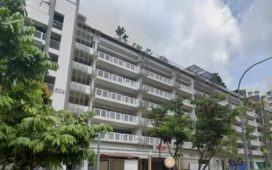SINGAPORE – Neighbours warring over noise issues will have to try to talk things out in future or get hit with penalties, with plans to make mediation mandatory for three categories of cases.
The other two categories of cases are disputes that have resurfaced after mediation at the Community Mediation Centre (CMC), and disputes in which parties want to file a claim with the Community Dispute Resolution Tribunal (CDRT).
Amid an increase in quarrels between neighbours in recent years, the move is among several planned to enhance the community dispute management framework to encourage amicable and early resolution of such disputes.
Second Minister for Law Edwin Tong, speaking at the debate on the Law Ministry’s budget, noted: “Mediation can preserve and often even strengthen the relationship between neighbours, by providing them with a platform in the hands of a very good trained mediator to resolve the disputes amicably in very much a win-win fashion.”
MPs had spoken during the debate of the difficulties they faced in getting warring residents to go for mediation, lamenting that many have flatly refused to go through the process.
Some like Mr Patrick Tay (Pioneer) called for mediation to be made compulsory. Even when cases have been mediated or adjudicated by the CDRT, some residents have ignored the settlements or orders, MPs also said.
Mr Tong said statistics collected so far show that mediation is highly effective in helping neighbours work things out, and of disputes that end up at the CMC, 80 per cent are successfully resolved.
But in the first place, those who agree to mediation voluntarily are in the minority, with only 30 per cent of neighbour disputes handled at the CMC, he added.
The aim of making mediation mandatory is to encourage take-up at an early stage to increase the chances of such disputes being resolved amicably, he said.
Elaborating on the plan, Mr Tong said those involved in noise-related disputes could face penalties if they do not attend the mandatory mediation sessions. If parties do not go through the process, they will not be able to file a claim at the CDRT, he added.
For cases handled by the CMC in which issues have resurfaced, the centre will be able to mandate remediation, he said.
And in all community disputes, parties who want to file a claim to the CDRT will first have to go for mediation, to prevent disputes from escalating to court unnecessarily, he added
Mr Tong told MPs their encouragement will help, and urged them to advise their residents to consider mediation. He also said it can be highly effective in the hands of a good mediator, even among parties who are unwilling.
Mr Derrick Goh (Nee Soon GRC) asked if more could be done to make mediation settlements and orders more effective, noting that his residents have given feedback that they are often ignored.
Mr Tong said to give mediation more standing and teeth, a mechanism will also be created for settlement agreements by the CMC to be registered and enforced as a CDRT order, provided certain conditions are met.













